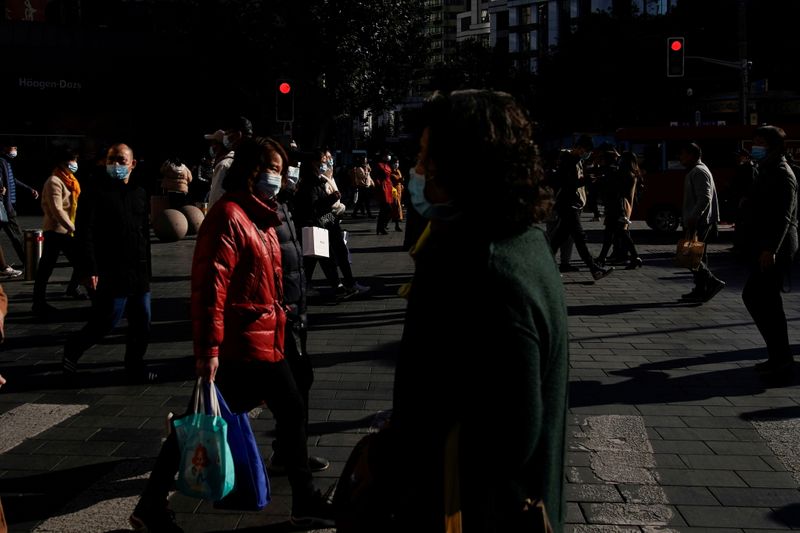(Reuters) – Here’s what you need to know about the coronavirus right now:
U.S. and Germany plan new restrictions
The United States and Germany joined countries around the globe planning stricter COVID-19 restrictions on Thursday as the new Omicron variant rattled markets, fearful it could choke a tentative economic recovery from the pandemic.
The European Union’s public health agency said on Thursday that the Omicron variant could be responsible for more than half of all COVID-19 infections in Europe within a few months.
France on Thursday reported its first two cases of the new variant.
Dutch health authorities called for pre-flight COVID-19 tests regardless of vaccination status for travel from outside the European Union, revealing that about 90% of the 62 people who tested positive on two flights from South Africa on Nov. 26 had been vaccinated.
The United States on Wednesday identified its first known COVID case caused by the Omicron variant, discovered in a fully vaccinated patient who travelled to South Africa.
India reported its first two cases of Omicron on Thursday but the government said it had no immediate plan to authorise booster vaccine shots despite demands from lawmakers in parliament.
Japan on Thursday reversed a ban on inbound flight reservations, revealing confusion between government agencies and the public over Prime Minister Fumio Kishida’s strategy to keep out the Omicron variant.
Laboratory analysis of the antibody-based COVID-19 therapy GlaxoSmithKline is developing with U.S. partner Vir has indicated the drug is effective against Omicron, the British drugmaker said on Thursday.
South Korea hits new COVID-19 record
South Korea’s daily coronavirus case numbers rose to a new high on Thursday, as authorities halted quarantine exemptions for fully vaccinated inbound travellers for two weeks.
The Korea Disease Control and Prevention Agency reported 5,266 cases for Wednesday, a day after the daily tally rose above 5,000 for the first time amid concerns over a sharp rise in patients with severe symptoms.
EU regulator begins real-time review of Valneva’s shot
The European Union’s drug regulator said on Thursday it had started a rolling review of the protein-based COVID-19 vaccine from French biotech firm Valneva, weeks after the EU signed a deal with the company for supplies of the shot.
The decision to start the real-time review was based on preliminary studies that suggest the vaccine, VLA2001, triggers an antibody response against the coronavirus, the European Medicines Agency said in a statement.
Hong Kong to launch mobile ‘health code’ app
Hong Kong authorities will launch a new “health code” mobile phone application next week that travellers to mainland China would be required to use as the city prepares for a partial reopening of the border with the rest of the country.
The app will be similar to one in China, storing a user’s name, address and vaccination status, with a function to scan QR codes to enter restaurants and other venues. It also assigns infection risk to users based largely on their past check-ins.
New Zealand’s re-opening plans leave Maori feeling exposed
As New Zealand prepares to ease its pandemic controls and global isolation after nearly two years, the health risks for its under-vaccinated indigenous Maori are posing a challenge for Prime Minister Jacinda Ardern.
Maori, who make up around 15% of New Zealand’s 5 million population, account for the highest proportion of new COVID-19 cases, averaging around 200 a day.
(Compiled by Linda Noakes; editing by Barbara Lewis)

















